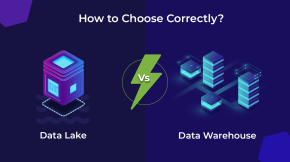What Is Data Democratization? Why It’s the Key to Unlocking Your Company’s Hidden Potential
Humans Have Always Collected Things.
It’s in our DNA. But what if I told you that data is the most valuable thing you could collect today?
Now, I’m not talking about physical stuff. I’m talking about information. Numbers, patterns, behaviors, insights. The real gold of the digital age.
But here’s a shocker: Forrester says 60-73% of that data goes unused. It’s like having a treasure chest and never unlocking it.
Why?
Because data democratization hasn’t been fully realized in most businesses. And that’s what we’re going to fix today.
Introducing Data Democratization: The Key to Unlocking Your Data’s True Power
So, what is data democratization, really?
Let me break it down for you.
Democratization of data is the process of making data accessible to everyone in a company—not just the numbers nerds in the IT department. It’s about empowering every single employee, from the intern grabbing coffee to the CEO making million-dollar decisions, to access and use data to make better decisions.
Sounds simple, right?
It’s not.
And that’s why companies like Beyond Key exist—to help you unlock the potential of your data.
Why Isn’t Everyone Doing It? The Roadblocks to Data Democracy
Okay, so if democratization of data is so great, why aren’t more companies jumping on it?
- Siloed Operations: Departments don’t share data well. Finance has what it needs, marketing hoards its own data, and IT… well, they’re the gatekeepers. This creates chaos. Chaos leads to missed opportunities.
- Resistance to Change: People love their old ways. They resist change like my grandma resists buying a smartphone. Convincing teams and execs to embrace a data-driven mindset? Easier said than done.
- Data Overload: You’ve probably got too much data. And you don’t know where to start. It’s overwhelming. You’re drowning in data but starving for actionable insights.
Why Humans Love Data
Data democratization taps into the thrill of discovery.
When employees can access data on their own—without having to ping IT every five minutes—it creates a culture of curiosity. Employees want to find patterns. They want to hunt for insights. And when they find those golden nuggets, it feels like winning the lottery.
How to Start Democratizing Data in Your Company: A Step-By-Step Guide
So, how do you actually do it? How do you get from a data-siloed, resistant-to-change mess to a fully democratized, data-driven organization?
Step 1: Take Inventory of Your Data
Where does your data live? Is it in the cloud? Scattered across different tools? You need to know what you have before you can democratize it.
Step 2: Choose the Right Tools
You don’t need to build everything from scratch. Tools like Power BI and Tableau are great for making data accessible. But it’s not just about the tool—it’s about integration. That’s where Beyond Key comes in. We help you choose the right tools, integrate them seamlessly, and train your team to use them.
Step 3: Educate Your Team
You can’t just throw data at your employees and expect them to know what to do with it. You need to train them. Show them how to access, interpret, and use the data. Create a culture of data literacy.
Beyond Key excels in helping companies train their teams, making sure everyone is comfortable working with data—whether they’re a data scientist or a sales rep.
Step 4: Implement Self-Service Analytics
Empower your employees. Give them the ability to access data without needing IT. That’s where self-service BI comes in. Imagine your marketing team being able to run their own reports without waiting for the data team. That’s a game-changer.
How Companies Are Winning with Data Democratization
Let’s talk about Allianz. They upskilled over 6,000 employees, enabling them to use data for decision-making. The result? Over 1.9 hours saved per week for every single employee. Do the math—that’s a massive productivity boost.
And they didn’t do it alone. They had partners guiding them, much like how Beyond Key can guide you.
The Cross-Industry Benefits of Data Democracy
It doesn’t matter if you’re in healthcare, finance, or e-commerce—data democratization applies to everyone.
- In healthcare, it means doctors can access patient histories instantly and make better decisions.
- In finance, it means analysts can run their own reports without waiting for data scientists.
- In e-commerce, it means marketers can see real-time customer behavior and adjust campaigns on the fly.
Data democratization isn’t just a buzzword. It’s a necessity for any industry that wants to thrive in the digital age.
Challenges of Data Democratization
Now, I’m not going to lie to you. Implementing data democratization isn’t easy. You’re going to face challenges.
- Data Security: Giving everyone access to data means you need tight governance. You don’t want sensitive information falling into the wrong hands.
- Data Quality: Not all data is good data. You need processes in place to ensure the data is clean, accurate, and up to date.
- Resistance from Leadership: You’ll need to convince the bigwigs that democratizing data is worth the investment. But once they see the ROI, they’ll be all in.
But Here’s the Thing: It’s Worth It.
Imagine a world where your employees don’t rely on others running reports.
Where your marketing team can see real-time campaign data.
Where your customer support can instantly access user history and solve problems faster.
That’s the world Beyond Key can help you build.
Ready to Get Started? Here’s How Beyond Key Can Help
At Beyond Key, we specialize in helping companies like yours unlock the power of their data. We don’t just give you the tools—we help you implement them, train your team, and create a culture where data-driven decisions are the norm.
Ready to start Data Democratizing your data? Learn more about Data Analytics Services
Book a ConsultationIs Your Organization Ready for Data Democratization?
Before you go, ask yourself:
- Are we using all the data we collect?
- Do our employees feel empowered to make data-driven decisions?
- How much time (and money) could we save by implementing self-service BI?
- Are we embracing a data-first culture?
If the answer to any of those is “no,” it might be time to rethink your data strategy.
And remember, you don’t have to do it alone. Beyond Key is here to help.












